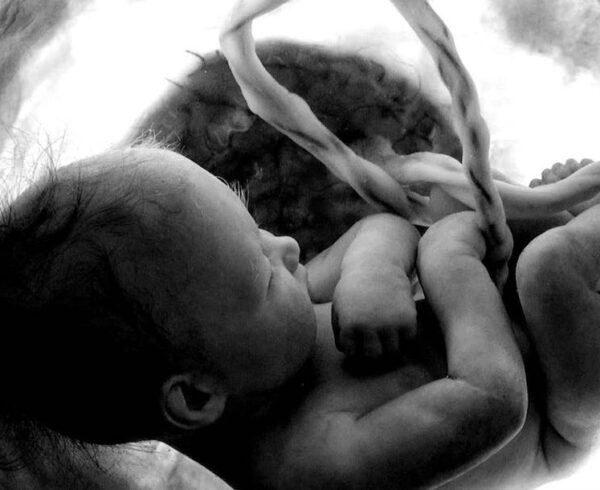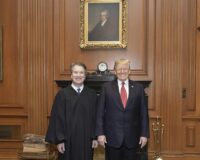Why do so many American Christians feel they are being persecuted as a result of the current furor over same sex marriage? The fervent “religious” opposition to same sex marriage and Lesbian, Gay, Bisexual, and Transgender (LGBT) persons in general reminds me of the trauma this country went through as a result of rulings from the Supreme Court of the United States (SCOTUS) regarding desegregation in the 1960s and 1970s. Religious opposition to desegregation and same sex marriage has not—in the case of desegregation—and will not—in the case of same sex marriage—prevent or reverse SCOTUS rulings. Many Christians, therefore, mistakenly believe they are being persecuted by the Federal courts and “liberal” components of our society.
Current Events
This sense of religious persecution probably finds its most compelling focus today in the declining public opposition to same sex marriage, which is often cited as one of the negative outcomes from the disappearance of religious involvement in our civil lives. A recent projection from the Pew Research Center illustrates a trend adding to the anxiety: Christians will decrease from more than three-quarters of the US population in 2010 to two-thirds in 2050. Furthermore, so-called “millennials,” persons reaching young adulthood around 2000, are losing interest in organized Judeo-Christian religions in favor of “spirituality,” a dismaying and disturbing finding for many persons within older generations.
SCOTUS decisions over the past several years fuel the alienation among many Christians, especially those who adhere to a “traditional” interpretation of Biblical principles. The pending SCOTUS ruling on the constitutionality of same sex marriage, regardless of how the decision turns out, will further alienate segments of our citizenry. In response to the likely fact that SCOTUS will declare same sex marriage constitutional, or craft a compromise pleasing no one, several states have passed versions of the Federal Religious Freedom Restoration Act (RFRA): Government shall not substantially burden a person’s exercise of religion even if the burden results from a rule of general applicability.
In non-legal shorthand and keeping in mind the expected (or feared) SCOTUS ruling on same sex marriage, the intent of these state RFRA constitutional amendments is to provide business owners a way around having to serve LGBT persons in various facilities, e.g., restaurants, flower shops, photography studios. Persons who engage in public commerce can thereby invoke a state RFRA to refuse to serve segments of the public on religious principles. Thus, RFRAs can be considered a means to circumvent not only the expected SCOTUS ruling but also the Interstate Commerce Clause of the Constitution, which gives Congress the power to regulate commerce with foreign nations, and among the several states, and with the Indian tribes. Why the Interstate Commerce Clause? Because it is difficult to conceive of any business that doesn’t in some way engage in interstate commerce.
The Futility of RFRA
The foregoing summary could lead to a discussion of how implementation of the various state RFRAs violates the US Constitution but that discussion must wait for a future post. A more serious objection to RFRAs revolves around—for discerning Christians—freedom of religion in its most fundamental meaning.
When we say the Constitution of our democratic republic and RFRAs guarantee us freedom of religion, we place ourselves in serious opposition to the Book of Revelation because God controls all creation. Accordingly, Christians profess, worship, and serve Jesus Christ as a duty and joy derived from Devine imperatives, not governmental fiat. Governments, even by consent of the governed, do not grant us freedom of religion because we must carry out the Divine imperative regardless of the civil authority under which we exist. The central point, therefore, does not relate to whether Christians have freedom of religion but whether Christians perform their obligation of preaching the Gospel—through words and actions—as truth under all circumstances, irrespective of the government exercising civil authority.
A Little History
The history of our faith, specifically Christians within the Roman Empire, shows why changes in hearts and minds through profession, proclamation, witnessing to, rejoicing in, and serving Jesus Christ through ministry to our brothers and sisters work much better than legislation such as RFRAs. In the first three centuries after Christ’s resurrection, Roman laws encouraged the torture and killing of Christians. That is, Christians had no legal protection in the Roman Empire until the Emperor Constantine promulgated the 313 AD Edict of Milan, which formally declared Christianity a legally permitted religion in the Empire. Nevertheless, the number of Christians rose from approximately 1,000 (0.0017% of the population in the Roman Empire) in 40 A.D. to nearly 34 million (56.5%) in 350 A.D. This phenomenal growth rate in the Community of Believers has never been replicated, even in our supposedly Christian country with the benefit of laws based in part upon the Ten Commandments.
Christians in the early Roman Empire chose to act upon their convictions regardless of the consequences, which often were deadly. Are RFRAs a means whereby some Christians try to avoid the consequences of acting upon their religious convictions?
The Future
I don’t despair about the future but, instead, I do my best to rely upon the providential grace of God. After the SCOTUS ruling on same sex marriage, various organizations such as the American Civil Liberties Union, will challenge the applicability of RFRAs as a means to circumvent the decision. These challenges will ultimately prove legally successful and RFRAs will be discarded as a means of opposition to same sex marriage.
This perspective notwithstanding, let us ask ourselves the following question: Would Christians opposed to same sex marriage be better off by serving LGBT persons with humility, grace, and kindness—attitudes that might help heal divisions—or by using RFRAs to further inflame the discord rampant in many segments of our society? We should keep in mind that the early Roman Christians converted the Roman Empire to Christianity by persuasion, witness, and service to all persons, not by force or withdrawal from society, no matter how heinous the opposition to Christianity.
If you enjoyed reading this blog post, please consider purchasing my novel, Comfort and Affliction on Amazon or Barnes & Noble.











Mike, Thank you for another thought provoking dissertation. My views on same-sex marriage and religious freedom are very simplistic. If you are forced into entering a same-sex marriage, that violates your religious freedom. If you are forced to recognize someone else’s same-sex marriage, that does not violate your religious freedom. Churches cannot be forced to perform same-sex marriages, just as the Catholic Church cannot be forced to marry people who are divorced; however, civil marriages are a different matter, and that is a distinction that most people who oppose same-sex marriage fail to recognize.
The North Carolina state legislature is trying to pass a law that would allow magistrates to refuse to perform marriages. In an attempt to prevent the law from being declared unconstitutional, a magistrate who refuses to perform same-sex marriages must also decline to perform any marriage. At the other end of the spectrum, the United Church of Christ is one of the parties in the suit against the state’s same-sex marriage ban on the grounds that the ban prevents their ministers from ministering to a segment of their congregation, and therefore violates their religious freedom. Their challenge to the ban has been upheld by the US Court of Appeals, as well it should.
The way I look at RFRA is also simplistic. The government cannot place an undue burden on a person’s exercise of religion; however, I do not view discrimination as a fundamental religious right. Again, the government cannot force a church to perform a same-sex marriage, nor can the government force anyone to enter into a same-sex marriage; however, the government can and should be able to force commercial establishments to treat all patrons the same. A business has every right to determine which goods or services it will provide; however, a business has no right to determine for whom those goods or services will be provided. If a gun dealer sells a gun to a person, and that person uses the gun to commit a crime, did the gun dealer participate in or condone the crime? I do not think so. If the gun dealer cannot be charged with the crime committed using the gun he sold, how does providing flowers, cake, a venue, or anything else to a same-sex couple equate to condoning same-sex marriage or otherwise infringe on the religious freedom of the vendor? Businesses are businesses, and churches are churches. The Hobby Lobby ruling notwithstanding, businesses are not religions and a business not providing a service to one couple that it would have provided to a different couple is discrimination – not the exercise of religious freedom.
Great comment, Rick! In conjunction with what you wrote, I think too many of my conservative–political and religious–brothers and sisters confuse important issues: (1) While a fundamental goal of many religious persons, including me, is to work for the time when we actually live in a theocracy under God with Jesus Christ as God’s vicar or governor on earth. No matter how hard we might try, we can’t reach that goal by legal coercion. We can best go forward by changing hearts and minds through multifaceted witness and service. Therefore, I advocate a profoundly level playing field under the US Constitution. (2) For many religious persons, marriage is a covenant established by God. (Although citing the Genesis story of Adam and Even as a mandate for heterosexual marriage between one man and one woman falls far short of what subsequently happened with the Patriarchs.) Even so, marriage is a function of the civil authorities, i.e, in most jurisdictions a legal marriage requires a state-issued license. People can then chose to marry in a church or before a civil authority–but a church marriage is not legal with the license. Homosexuals are citizens of the US by birth or naturalization. As citizens, homosexuals are entitled to all Constitutional benefits (e.g., marriage) and must meet all Constitutional obligations (e.g., payment of taxes). One obligation citizens engaged in business must meet is the Constitutional requirements for non-discrimination vis-a-vis goods and services offered. That is why I think that soon after SCOTUS rules, the ACLU, etc. will bring suit against state RFRA and possibly the national RFRA, which as I understand applies only to the Federal government. Additionally, like with segregation, economics will ultimately prevail: Why cut yourself off from the profit to be made from homosexuals?